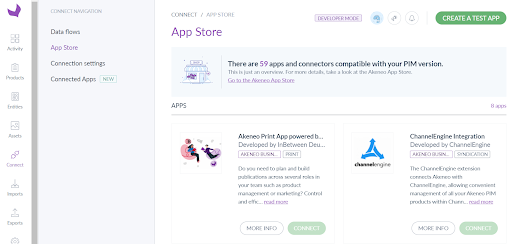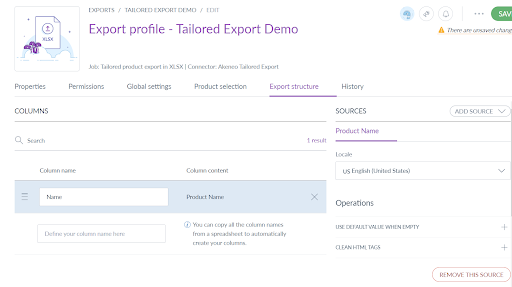I attended my first Akeneo Unlock Conference in February of 2020 as a brand new employee at Sitation. It was a great experience, as any trip to Paris should be. Akeneo 4.0 was released, a new development track demoed the new upgrade process live, and I met a ton of great Akeneo employees and partners. Covid pushed the 2021 Unlock conference online like the rest of our lives, allowing us only to interact via videos and chats. Vaccines and time bring us back to our first in person conference in two years, and I’m so thankful for the ability to travel and meet people in person again.
Deserving the highest praise I can offer, every year Akeneo fixes the biggest platform weakness I’ve encountered.
- 2.0 added true configurable products for enrichment with model variants. I had a good laugh with a developer this year about the original inner variation bundle and the challenges of migrating from 1.7 to 2.0
- 3.0 Added much improved reference entities, removing the the need to write code for reference data
- 4.0 Brought true asset management, addressing the needs that image and videos were critical to products and had their own metadata that should also be managed in the PIM
- 5.0 gave us improvements to rules, data quality analytics, and improved associations
Above is an incomplete list, but it covers what I saw working with and writing code for clients. In addition, more clients are opting to use the Serenity SaaS offering than ever before. As the tool is improved, additional customizations are no longer worth the trade off of moving support in house. It’s not the right choice for all clients, but it’s increasingly the right move to avoid additional support costs and get the more frequent improvements released to Serenity users throughout the year. Those improvements over the last year, including table attributes, tailored exports, and improvements to enriching reference entity records among others, will be available to Flexibility Customers who upgrade to 6.0. Reach out to us if you would like help upgrading to 6.0 or to discuss moving from PaaS to SaaS. The new features announced for 6.0 have been in the field for months for SaaS, eliminating any of the suspense around new features coming today. This could have made Unlock 2022 more procedural than exciting, with no real surprises for 6.0 but there is more.
The announced near term and existing ecosystem improvements are the most impressive leap forward I’ve seen Akeneo make to date. Here are some highlights below:
Apps
Akeneo is moving away from custom bundles and extensions that live within their application. As a developer, It’s a bittersweet but smart move for companies to avoid customizations that can result in expensive upgrade processes and long term technical debt that forces clients to pay for support or take it on themselves. But how do we increase the capabilities of the PIM without adding code to the server?
Enter the new and improved Apps available not just in the Akeneo Apps Store website, but also inside your PIM:

Any app here is compatible with Serenity (Akeneo’s SaaS Version) because it’s hosted externally and connected via API. In addition, Apps can be configured for a seamless user experience, where a user can access your App through the PIM with their existing user info being available to sign in. We’re planning on leveraging this new tool for some upcoming projects and will definitely be adding more content on our blog moving forward.
MACH Alliance and Composable Commerce
We’ve been developing integrations and implementing PIM’s while touting the benefits of a microservices architecture for years. At a high level, systems built of many dedicated systems allow for greater flexibility and easier long term growth. This is in opposition to a monolith architecture, where you build your entire system to do everything. Distributed systems require additional integrations to link everything together, but allow you to switch out components of the system as they need to be upgraded or replaced for new features.
MACH stands for Microservices based, API-first, Cloud-native SaaS and Headless. It’s a more detailed version of a microservices approach, where SaaS platforms are leveraged without any code/service required outside of the integrations required between.
Composable Commerce is an approach to ecommerce leveraging multiple dedicated ecommerce tools for your business’ unique needs. PIM is only one component of this system, but an emphasis on Composable Commerce outlines options for long term ecommerce growth for clients with a combination of highly specified tools rather than an all in 1 approach. This represents what most clients have been doing for years, and allows for far greater flexibility in building the best ecommerce experience possible.
Why should you care?
Gone are the days when you chose a one stop shop like SAP, added only their tools, got stuck in their ecosystem, and utilized their tools regardless of whether better alternatives exist. With composable commerce, you can keep your ERP on SAP, use a PIM like Akeneo for enrichment, and send data to your ecommerce site on Shopify or Magento or any other channels. When a system stops working, you replace only that system or add an additional dedicated tool to address a specific issue.
Tailored Exports:
This has been around as a serenity feature for a bit, but this is the first time I’ve seen it demoed and explored the full power this can bring. Previous to this feature, Akeneo only exported the codes of the catalog structures and attribute options. This was great from a code perspective, but made importing human readable spreadsheets a fairly manual process. Tailored exports allows custom header mapping on export and some transformations as well:

Sneak Peaks for this year:
I can’t go into full details here, but there are few items with early information and are listed on the Akeneo Roadmap:
- New sku functionality including automatic generation and use of multiple identifiers
- Import/Export automation
- This is a huge win for Serenity customers wanting to schedule relatively simple flat file imports using an automated ftp approach. API is better and faster, but sometimes an old fashioned scheduled import with configurable mapping is all you need to start
- Tailored Imports:
- All of the power of the tailored exports, but on the import side! Hugely powerful for clients who are given a standard file from some source they can’t change the headers on.
There are a few other improvements teased here that aren’t publicly available on the Akeneo website that I’ll keep off my list for now. But having conversations around future advancements to Data Quality, Enrichment, and new metrics to track the value of improved product data are on the horizon as well.
For more information on how we can help you access these new features within your Akeneo instance, please visit www.sitation.com to explore our managed services offerings.